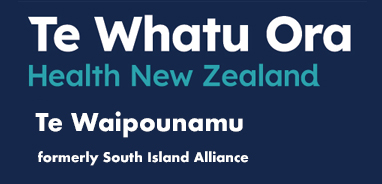 While New Zealand has a relatively high rate of exclusive breastfeeding initiation, there remains a significant drop-off in breastfeeding nationally in the first six months, particularly among Māori and Pasifika communities. To address this inequity, the South Island WCTO Quality Improvement Steering Group decided to explore Māori and Pasifika women’s experiences of breastfeeding, by interviewing 28 women across the South Island, from Blenheim to Invercargill. The findings have been collated into a report, Māori and Pasifika women’s experiences of breastfeeding across the South Island.
While New Zealand has a relatively high rate of exclusive breastfeeding initiation, there remains a significant drop-off in breastfeeding nationally in the first six months, particularly among Māori and Pasifika communities. To address this inequity, the South Island WCTO Quality Improvement Steering Group decided to explore Māori and Pasifika women’s experiences of breastfeeding, by interviewing 28 women across the South Island, from Blenheim to Invercargill. The findings have been collated into a report, Māori and Pasifika women’s experiences of breastfeeding across the South Island.
The findings showed breastfeeding outcomes cannot be improved in isolation nor solely by the health system/services. “Māori and Pasifika women’s experiences of breastfeeding are varied and influenced by many social and cultural factors, so wide reaching and multi-pronged approaches are needed to address the inequities,” says WCTO QI project manager Anna Foaese. “By gaining a better understanding of their breastfeeding experiences, we can work towards reducing the disproportionate outcomes that currently exist, ensuring that services are more accessible, user-friendly and best meets the needs of whānau. The voices of consumers can be an effective and powerful tool.”
Breastfeeding is often considered a cultural norm and expectation of infant feeding. For many women, the first few weeks are crucial and will set the foundation for successful breastfeeding outcomes. This includes identifying primary birthing units, supportive in-patient maternity care and regular LMC home visits during the postnatal period.
Hospital and community-based breastfeeding support services are largely varied across the South Island. Anna says one of the main themes that emerged from the interviews was the importance of a support network that can ‘mother the mother’ and that it takes a village to breastfeed. “This is identified in the South Island as the most protective factor for women to be able to successfully breastfeed.”
Family members are commonly regarded as the first point of contact for women experiencing breastfeeding difficulties, therefore women strongly suggested that breastfeeding education and information needs to extend to the wider whānau.
The project also showed more emphasis needs to be placed on organisations and industries to support and promote breastfeeding-friendly workplaces. Supportive workplace environments, employer’s knowledge and understanding of breastfeeding, flexible working conditions and paid expressing/breastfeeding breaks were identified as enablers. “It’s hoped that this report does not sit on a shelf, but listens to the powerful voices behind these stories and provides a practical tool that is used to drive change and influence breastfeeding outcomes for generations to come.”
Read the Māori and Pasifika women’s experiences of breastfeeding across the South Island report.








